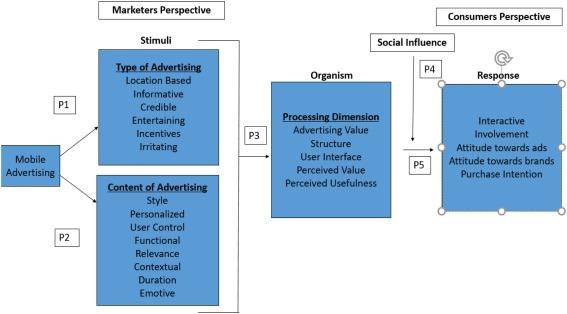Revolutionizing Learning: Case Studies Showcasing Blockchain in Higher Education
In recent years, blockchain technology has emerged as a transformative force, extending far beyond the realms of cryptocurrency. When we look at higher education, blockchain is uniquely positioned to address long-standing challenges—from verifying academic credentials to streamlining administrative processes.Let’s dive into the ways blockchain is shaping the future of academia and examine real-world case studies showcasing blockchain in higher education around the globe.
Why Blockchain in Higher Education?
Blockchain is fundamentally a decentralized ledger—secure, clear, and immutable. In the context of higher education, this means:
- Credential Verification: Storing diplomas, certificates, and transcripts on blockchain prevents fraud and enables instant verification.
- student Data Control: Students gain ownership over their academic achievements, sharing them as needed for further study or employment.
- Streamlined Admissions: Automation via smart contracts simplifies and secures the admissions process.
Benefits of Blockchain for Universities & Students
- Enhanced Security: Data stored on a blockchain cannot be tampered with, securing sensitive facts.
- Openness: Every transaction is visible to authorized parties, reducing administrative disputes.
- Efficiency: Automating record-keeping and verification significantly reduces paperwork, saving time and resources.
- Global Recognition: Blockchain credentials can be universally recognized and instantly validated, facilitating international student mobility.
- reduced Fraud: Counterfeit degrees and transcripts become a thing of the past.
Case Studies: Blockchain in Action at Universities
1. The University of Nicosia: Pioneering Blockchain Diplomas
The University of nicosia in Cyprus is a trailblazer in blockchain adoption.As 2014, they have issued digital diplomas using blockchain, allowing graduates and employers to instantly verify credentials. This strategy not only streamlines the hiring process but also eliminates the risks associated with forged qualifications.their open-source validation tool enables transparent and autonomous verification, setting a new standard for academic authenticity.
2. MIT: Digital Diplomas on blockcerts
The Massachusetts Institute of Technology (MIT) implemented Blockcerts, an open standard for blockchain-based credentials. Graduates receive both customary paper diplomas and blockchain certificates. This gives students lifelong access to their degrees, empowering them to share their academic achievements safely and instantly, anywhere in the world.
3. Sony Global Education & IBM: Blockchain for Student Records
In partnership with IBM, Sony global Education developed a blockchain-based platform to house and share students’ academic records. This solution enables institutions to share encrypted transcripts and assessment results securely and swiftly, improving student mobility and transfer processes between universities.
4.The University of Melbourne: Issuing Blockchain-Based Academic Credentials
the University of Melbourne uses blockchain technology to issue digital versions of academic credentials. Their system allows students to control access to their qualifications directly, reducing reliance on University staff for verification. This innovation improves security and convenience for both students and employers.
5. ECPI University: Blockchain-Based Transcripts for Military Students
U.S.-based ECPI University piloted blockchain-backed digital transcripts, specifically designed to help military students access and share their records from anywhere in the world. This not only facilitates smooth academic transfers but also addresses potential security concerns faced by military personnel.
Firsthand Experiences: Voices from the Field
“As a recent graduate, having my diploma stored securely on the blockchain gave me confidence when applying for jobs internationally. My employers were able to verify my qualifications instantly, streamlining my onboarding process.”
– Elena M., University of Nicosia Alumna
“Implementing a blockchain-based credentialing system helped us cut down on fraudulent degree claims and reduced the workload for our administrative team. The feedback from students and employers alike has been overwhelmingly positive.”
– Dr. James Hartley, Records Administrator, University of Melbourne
Practical Tips for Universities Implementing blockchain
- Start Small: Begin with pilot projects such as digital certificates before expanding across departments.
- Choose the Right Platform: Open standards like blockcerts or partnerships with providers (e.g., IBM Blockchain) ensure scalability and interoperability.
- Focus on User Experience: Involve students and staff in designing interfaces and workflows for seamless adoption.
- Ensure Regulatory Compliance: Work with legal teams to ensure all processes adhere to data protection and privacy laws.
- Promote Digital Literacy: Offer training sessions on using and validating blockchain credentials for students, staff, and employers.
Challenges and Considerations
- Technical Complexity: Implementing blockchain can be technically challenging, requiring specialized expertise and resources.
- Integration with Legacy Systems: Universities must ensure seamless connection between new blockchain solutions and existing databases.
- Adoption and Trust: widespread acceptance depends on educating both internal stakeholders and external partners about the benefits and reliability of blockchain credentials.
- Cost: upfront costs, though sometimes significant, are often offset by long-term efficiencies and fraud reduction.
The Future of Blockchain in Higher Education
As technology matures and global collaboration in education intensifies, blockchain is poised to become a cornerstone of academic record-keeping and credentialing. Remote learning,micro-credentials,skill badges,and international student transfers all stand to benefit from the transparency and security blockchain provides. Universities embracing blockchain are not just keeping up—they’re leading the innovation curve.
Conclusion
Blockchain technology in higher education is moving from theory to practice, with pioneering institutions already reaping the rewards. By providing secure, transparent, and universally verifiable academic records, blockchain is addressing core challenges faced by students and educators alike. As these case studies of blockchain in higher education show, a more efficient, trustworthy, and innovative future for learning is already here. For universities looking to stay relevant and competitive, exploring blockchain is no longer optional—it’s essential.

